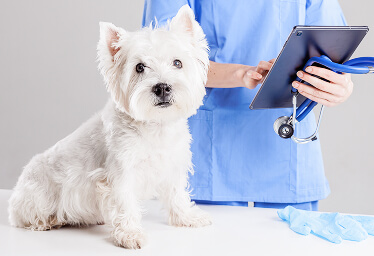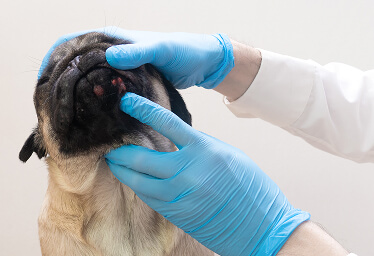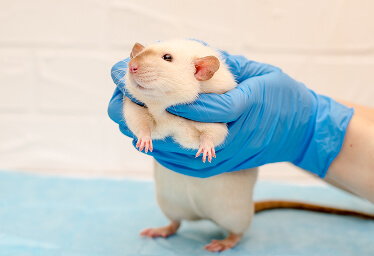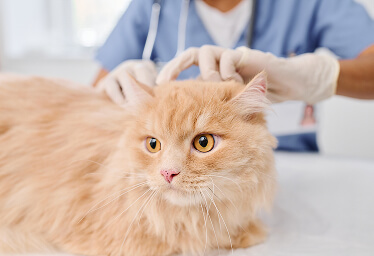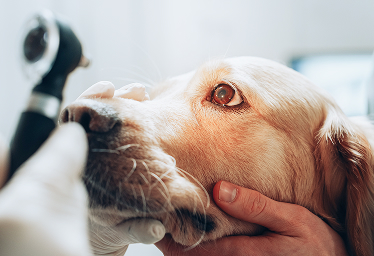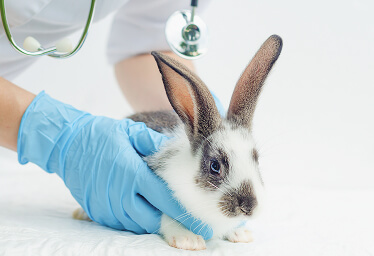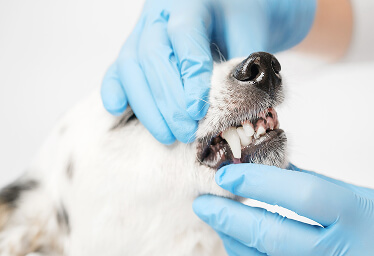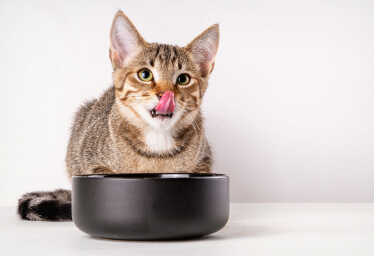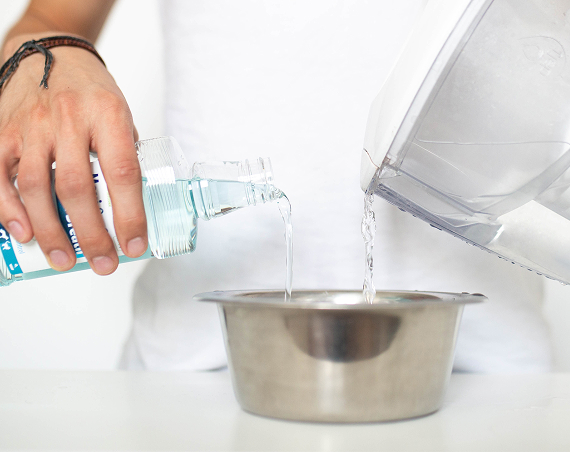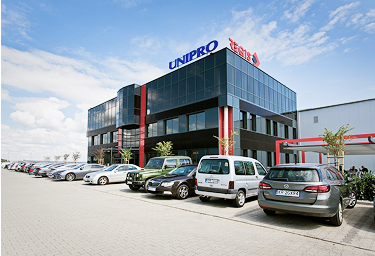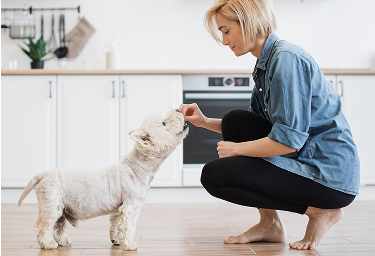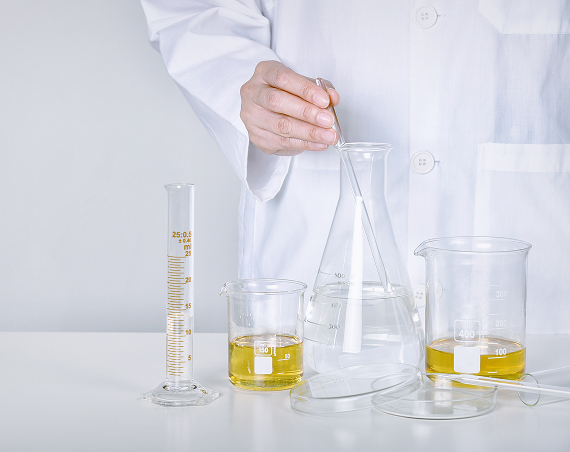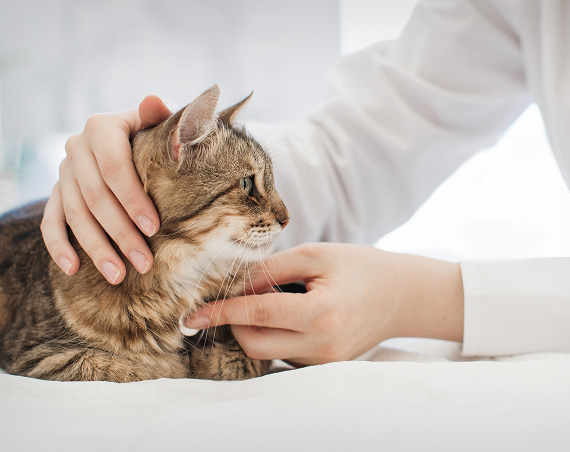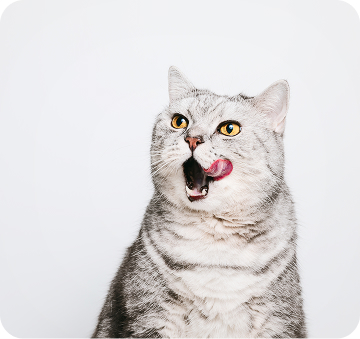(06 EN) artykuł, webinar, kot, koń, laryngologia, okulistyka, reprodukcja
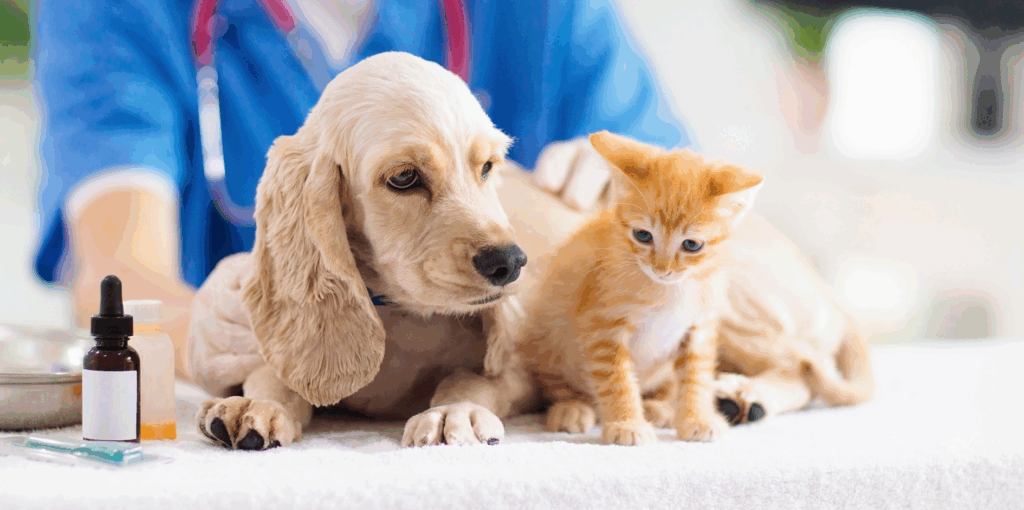
Na skróty
Dogs and cats are exposed to viruses and bacteria almost every day. We are not able to protect them from this. However, they are equipped with an extraordinary shield that protects their bodies from potential infection – the immune system. As responsible and conscious caregivers, we should support the immunity of our animals and stimulate the effective functioning of the immune system.
What exactly is the immune system?
In general, the immune system is made up of organs, tissues, cells, and small molecules that work together to protect the animal’s body from infectious agents. What exactly does it consist of?
- Lymph nodes – small structures located along lymphatic vessels in specific locations, whose main task is to filter and retain antigens
- T lymphocytes and B lymphocytes – responsible for cellular immunity and antibody production, respectively
- Spleen – responsible for filtering and retaining antigens directly from the bloodstream
- Bone marrow – the site of production of many white blood cells
- Thymus – a gland that is largest in young individuals, when the immune system is most active, and begins to decrease with age
- Leukocytes – many different white blood cells with different functions in the immune system (including reacting to bacteria, inflammation or supporting lymphocytes in the production of antibodies)
- Antibodies (immunoglobulins) – specialized serum proteins produced by B lymphocytes in response to antigens
How does the immune system work?
Looking at the functions of the immune system, they can be divided into two:
- Detective – recognition of foreign substances, i.e. antigens – the immune system is able to recognize foreign substances from the cells of its own body
- Protective – when the immune system functions properly, it provides protection against infectious diseases or other effects of antigens.

Types of immunity – how do they actually differ?
Looking at the immune response, immunity can be divided into specific and nonspecific, then active and passive. This division is the most popular.
- Specific response – develops after the body comes into contact with a given pathogen/foreign substance. After such contact, the animal’s body learns about this substance, adapts and reacts in a specific way to it. When the body is next exposed to this pathogen, the immune system already recognizes this substance. Specific immunity is primarily the responsibility of B lymphocytes, which produce appropriate antibodies (immunoglobulins) in response to contact with the pathogen.
- Non-specific response – is not directed against specific antigens. It includes protective barriers, such as skin and mucous membrane (as passive elements) and white blood cells, acting on the principle of phagocytosis, such as macrophages (active elements).
When the immune system doesn’t function properly…
Since the immune system plays a key role in the overall well-being of the animal and is the first line of defense against pathogens, any disruption in its functioning works to the detriment of the body. When the system does not work at full efficiency, the body has limited ability to fight viruses, bacteria or other pathogens. This increases susceptibility to disease.
What can cause decreased immunity?
It is really difficult to list all the possible causes of decreased immunity. There are many factors. The most common ones include stress, an unbalanced diet, illnesses and infections, or even the convalescence period. It is worth being aware that so many factors can affect the health of our pet and remedying the immune deficiency in advance by supporting its immune system.
Support, but how?
First, it is worth starting with the animal’s diet. A properly composed and balanced diet is the key to a properly functioning immune system. Remember that a proper diet must contain all the necessary nutrients, such as protein, fats, carbohydrates, minerals and vitamins, in the right amounts. Furthermore, such a diet should be adapted to the nutritional needs of the specific animal, taking into account its species, age, activity level and living conditions.

Discover our products
Find proven supplements, care products and specialist veterinary products. Go back to your choices and take care of your pet.
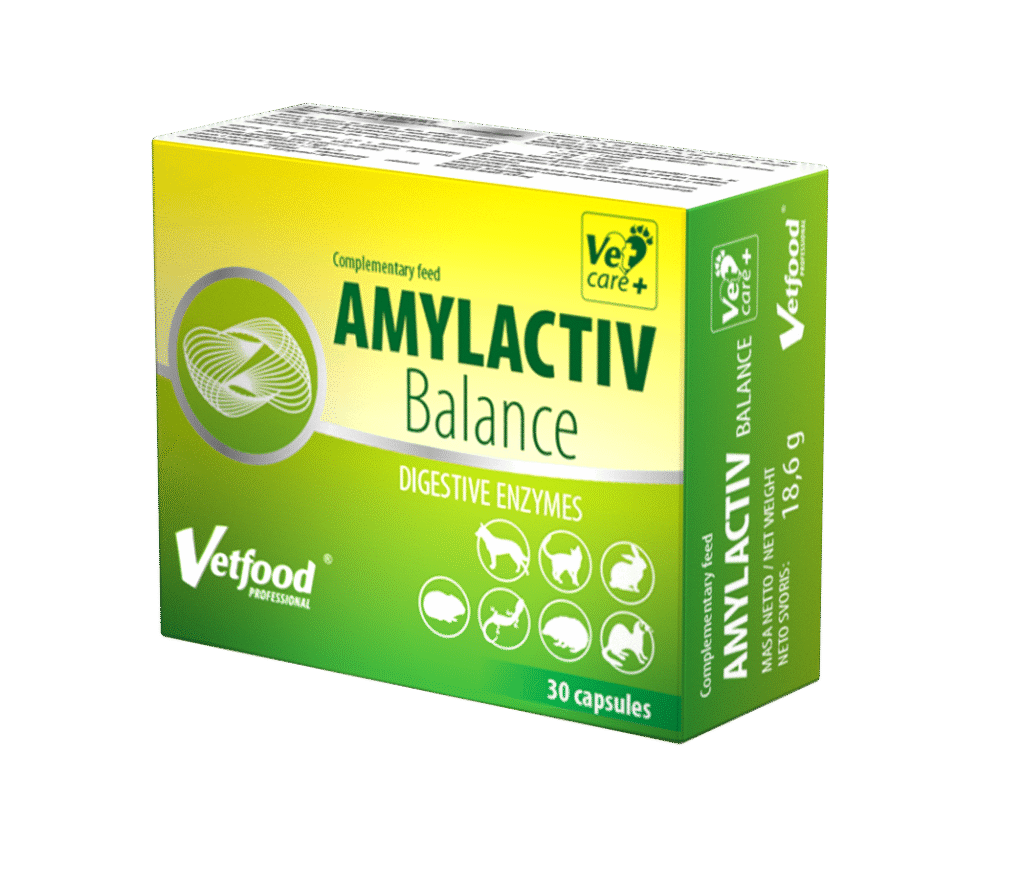

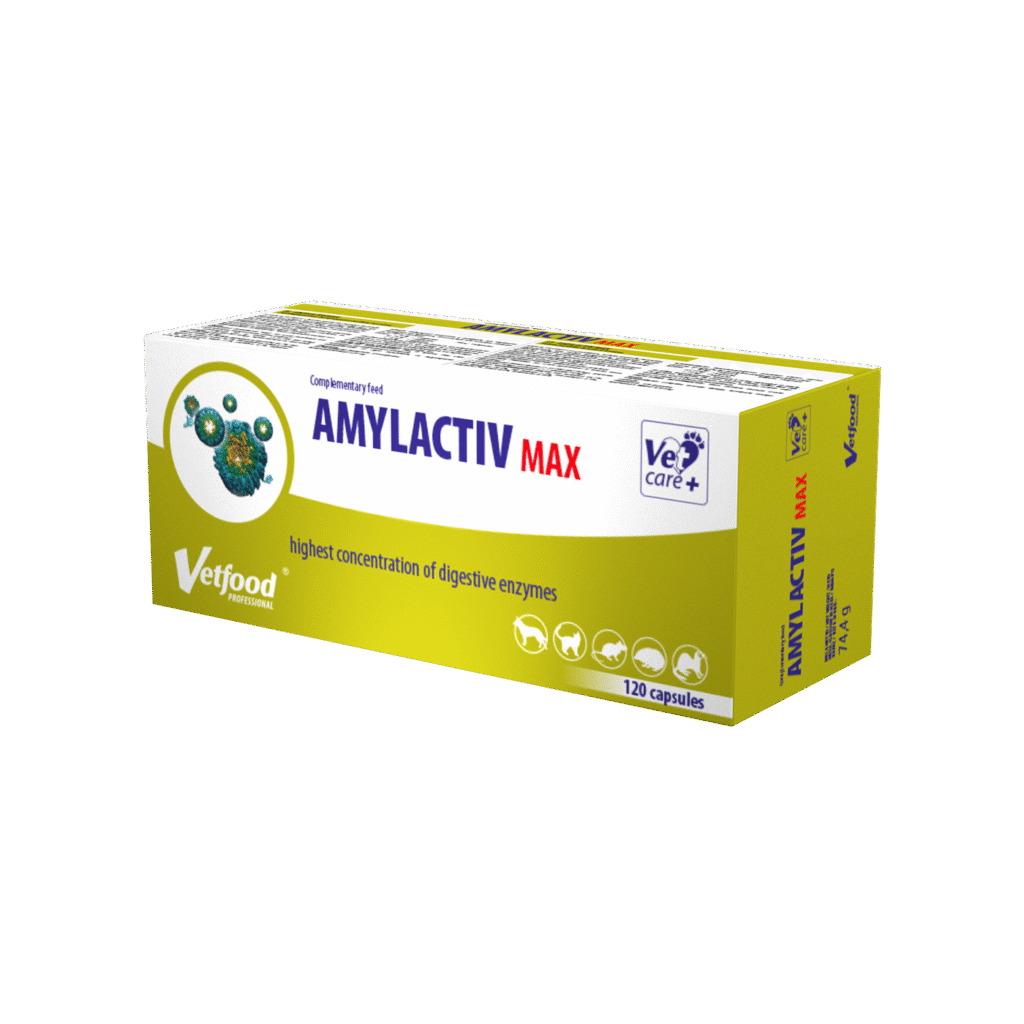
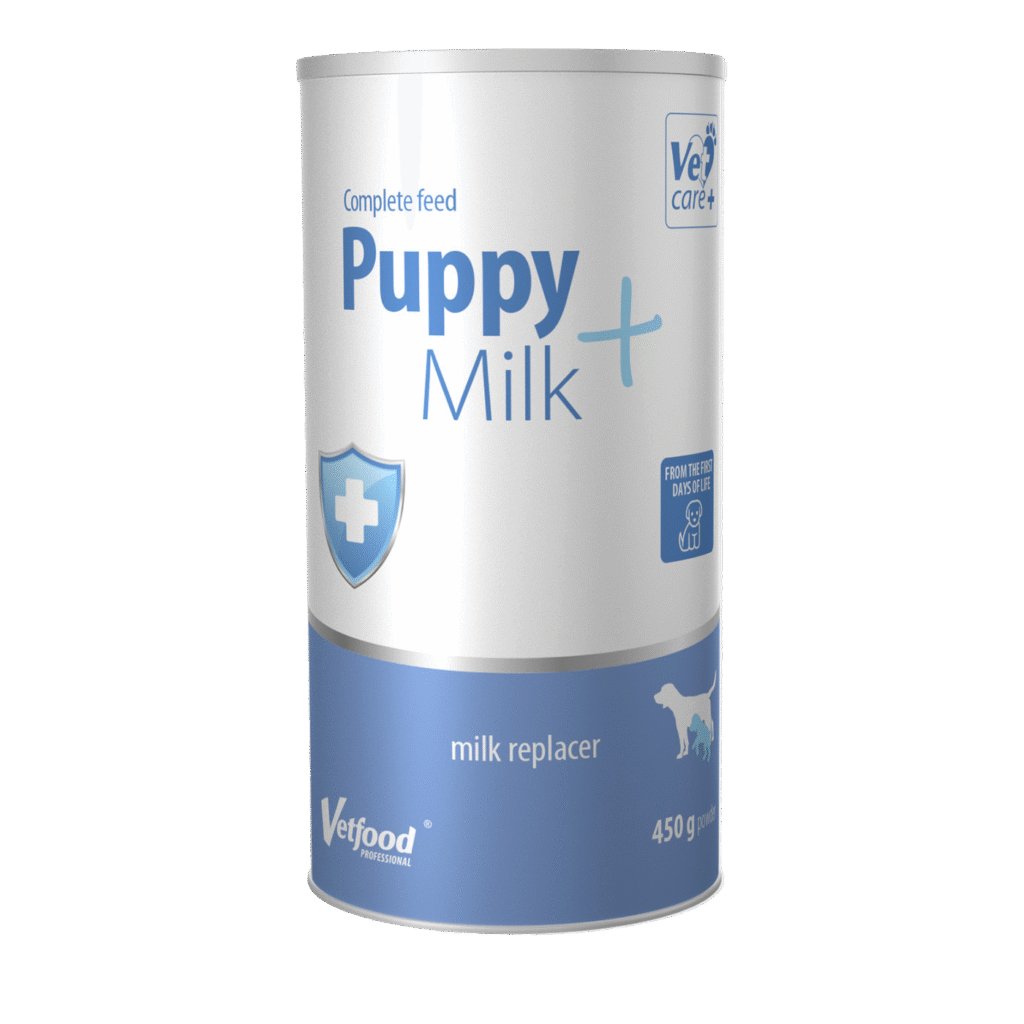






What should you pay particular attention to in your pet’s diet?
Beta-1,3/1,6-glucan – a polysaccharide obtained from the cell walls of the yeast Saccharomyces cerevisiae. The action of beta-1,3/1,6-glucan is to stimulate the activity of phagocytic cells (macrophages, neutrophils, monocytes) of the immune system responsible for eliminating pathogens that cause infections. Thus, enriching the animal’s diet with this particular beta-glucan increases the efficiency of the immune system.
It’s worth knowing
Not every beta-glucan works the same. If we want an effect that stimulates the immune system, we should choose beta-1,3/1,6-glucan. For example, beta-1,3/1,4-glucan, which is present in oats, among others, will not increase the efficiency of the immune system.
PROBIOTICS – live bacterial cultures. Including probiotics, or good bacteria, in the animal’s diet has a beneficial effect on the intestinal bacterial microflora. Interestingly, as much as 70% of immunity depends on the digestive system. Thus, by taking care of the balance of intestinal bacterial flora, we also support the animal’s immune system.
When choosing a probiotic, choose those dedicated to animals. They contain those strains of beneficial bacterial cultures that create the animal’s microbiome.
ANTIOXIDANTS – substances that support the animal’s body in the fight against free radicals. Free radicals cause the destruction of body cells. By including antioxidants in our diet, we support animal health by stimulating the immune system.
Summary
The immune system is an amazing defense mechanism that protects the body from many types of pathogens, including bacteria, viruses, toxins, and parasites. It is therefore worth supporting this unique system in every way possible, and thus helping our four-legged friends enjoy life and health for many years to come.
